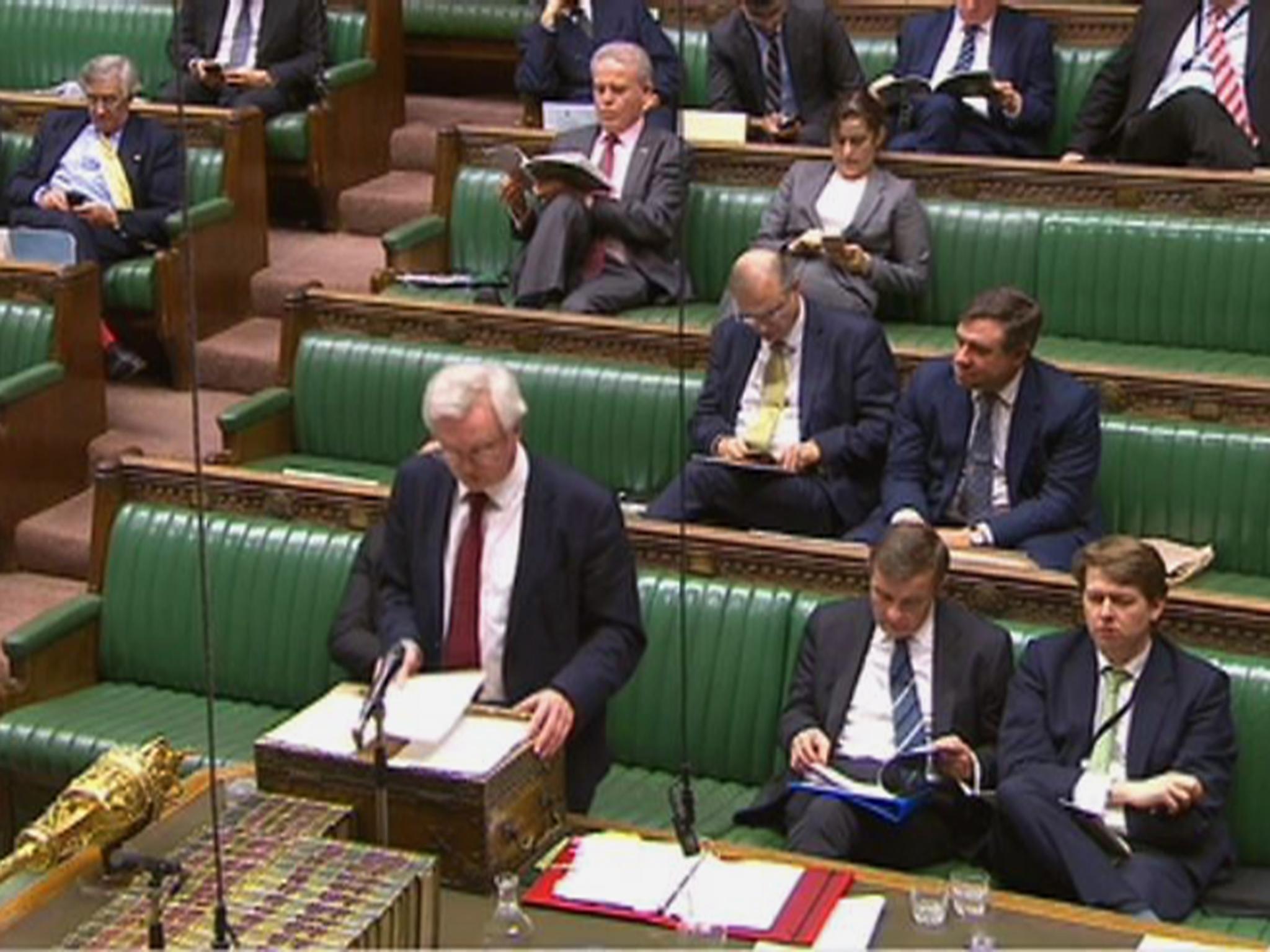Brexit secretary David Davis has strongly indicated that the UK will leave the EU's customs union after Brexit, potentially introducing much higher import duties and intrusive border checks.
In a White Paper published on Thursday, the government said that after leaving the EU, it wants to “ensure that we can take advantage of the opportunity to negotiate our own preferential trade agreements around the world.
“We will not be bound by the EU’s Common External Tariff or participate in the Common Commercial Policy.”
After the paper was published, Mr Davis was asked to clarify what the White Paper says about the customs union, and he confirmed that it meant Britain was “definitely leaving” it.
Tory backbencher Sir Edward Leigh said: “On page 49, the Government says “we have an open mind on how we implement new customs arrangements with the EU“.
“Just for the avoidance of doubt, will the Secretary of State confirm today we are not only leaving the single market and the EU, we are definitely leaving the customs union?“
Mr Davis replied: “If he continues to read that page, it confirms that we 'will not be bound by the EU’s Common External Tariff or participate in the Common Commercial Policy', which amounts to exactly that, what he said.”
The currency customs union facilitates free trade between EU states by ensuring that they all charge the same import duties to countries outside the union. Countries in the bloc agree not to impose tariffs on goods travelling between countries in the union.
It also reduces administrative and bureaucratic trade barriers such as customs checks. The government is likely to want to emulate some elements of this arrangement even if it does formally leave the customs union.
A customs union is different from a free trade area. In the latter no tariffs, taxes or quotas are charged on goods and services moving within the area but members are able to negotiate their own external trade deals.
Mr Davis' commitment to quit the union chimes with comments made earlier this week by Lord Price.
Speaking to German newspaper Die Welt, the Minister of State at the Department for International Trade said that the government understands that it will not be granted a special deal.
“Over the past weeks I have met with many of my EU counterparts […] most of them have made it clear to me that there will be no cherry-picking,” Lord Price told the paper. “We have understood the message,” he added.
He said that the aim is now to agree on all elements of Brexit through a free trade agreement with the remaining 27 member states of the EU, and that he hopes that this will be done within the next two years.
Supreme Court Brexit Challenge
Show all 13
In January, in a landmark speech at Lancaster House in London, Prime Minister Theresa May said that Britain would pull out of the single market when it leaves the EU.
On the customs union, however, she suggested that the UK could negotiate some sort of “associate member” access while retaining the right to carry out its own deals with non-EU nations - in other words, becoming exempt from the “common external tariff”.
The European customs union is the largest in the world by economic output, which gives it considerable negotiating power.
Subscribe to Independent Premium to bookmark this article
Want to bookmark your favourite articles and stories to read or reference later? Start your Independent Premium subscription today.


Join our commenting forum
Join thought-provoking conversations, follow other Independent readers and see their replies